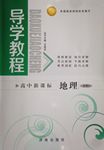A severely handicapped teenager who cannot walk, talk or hold a
paintbrush has won a place at Oxford to study fine art. Hero Joy Nightingale, 16, who communicates through hand movements, is to be given assistants to paint and sculpt(雕塑) in place of her .Her mother Pauline Reid “translated” for her daughter during interviews for the place at Magdalen College.
The teenager is the most severely handicapped student ever to be given a place at Oxford. She suffers from a terrible disease caused by brain damage that makes her unable to speak and her body useless.
She is unlikely ever to be able to walk, feed or care for herself but, thanks to the efforts of her mother. She can communicate. When Hero was four, Pauline designed a system of hand gestures that is equal to the alphabet.
By dictating to the her mother , Hero has created an internet magazine, From the window, which contains by George Carey, Melvyn Bragg, Margaret Atwood and Kofi Annan — all of whom are invited to write for her.
A spokesperson for Oxford said, “The university welcomes applications from students with disabilities. In cases where students are profoundly disabled, there may be many issues(问题) that need to be carefully talked about before an individual can take up a place, such as fixing firmly how the student can best be taught and examined.”
Hero, who suffers almost daily epileptic fits and has a hole in her heart, has not attended school since she was six. She has been taught at home by her mother and father, who work at Kent University.
Peter Giles, her art tutor until last year, said she has a gift for art. “She is ferociously gifted. We would sit together and her mother would grab her daughter’s hand and then we would begin work,” he said.
Together, they built several modern sculptures from plaster and metal. “The instructions would talk a while to decipher(解释,解密). But finally, they would come, and finally make sense.”
Hero’s classes will be held at the Ruskin School Drawing and Fine Art.
小题1:According to the passage, which of the following statement is NOT TRUE?
| A.Oxford University has taken in other handicapped students besides Hero. |
| B.Hero’s mother is the only person who can understand her fairly well. |
| C.Hero can not create any art works without her fairly well. |
| D.Only through her hand movement, is Hero able to paint and sculpt. |
小题2: In the sentence: “But finally, they would come and finally make sense.”, the word “they” refers to _______.
| A.the assistants | B.the mother and the assistants |
| C.Hero’s instructions | D.the mother’s instructions |
小题3:Which would be the best title for the passage?
| A.Disabled Hero and her Mother |
| B.Disabled Hero Wins Oxford Place |
| C.Oxford University Welcome Disabled Students |
| D.Disabled Students Living in Oxford University |

 导学教程高中新课标系列答案
导学教程高中新课标系列答案